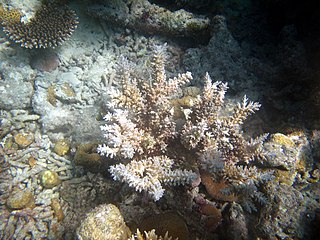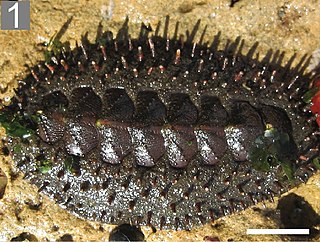Brazil is the largest country in both South America and Latin America.

Paubrasilia echinata is a species of flowering plant in the legume family, Fabaceae, that is endemic to the Atlantic Forest. It is a Brazilian timber tree commonly known as Pernambuco wood or brazilwood and is the national tree of Brazil. This plant has a dense, orange-red heartwood that takes a high shine, and it is the premier wood used for making bows for stringed instruments. The wood also yields a red dye called brazilin, which oxidizes to brazilein.

Pinus echinata, the shortleaf pine, is a species of pine native to the eastern United States from southernmost New York, south to northern Florida, west to eastern Oklahoma, and southwest to eastern Texas. Shortleaf pine has the largest range of the southern US yellow pines, but reaches its ecological maxima around western Arkansas in the Ouachita Mountains. The tree is variable in form, sometimes straight, sometimes crooked, with an irregular crown. This tree reaches heights of 20–30 metres (65–100 ft) with a trunk diameter of 0.5–0.9 metres.
Banksia echinata is a species of shrub that is endemic to Western Australia. It has serrated leaves with nine to twenty-five sharply pointed, triangular teeth on each side, heads of about fifty pale yellow flowers and sparsely hairy follicles.

Acanthastrea echinata, commonly known as the starry cup coral, is a species of corals in the family Lobophylliidae. It is a wide-ranging species found from the western Indian Ocean, throughout the Pacific Ocean, and eastward to the southeastern Atlantic Ocean. It can inhabit any reef habitat to depths of 50 m. This species, which may become threatened with the global decline of coral reefs, is a popular coral used in aquariums.

Brazilin is a naturally occurring red dye obtained from the wood of Paubrasilia echinata, Caesalpinia sappan, Caesalpinia violacea, and Haematoxylum brasiletto. Brazilin has been used since at least the Middle Ages to dye fabric, and has been used to make paints and inks as well. The specific color produced by the pigment depends on its manner of preparation: in an acidic solution brazilin will appear yellow, but in an alkaline preparation it will appear red. Brazilin is closely related to the blue-black dye precursor hematoxylin, having one fewer hydroxyl group. Brazilein, the active dye agent, is an oxidized form of brazilin.

Carex echinata is a species of sedge known by the common names star sedge and little prickly sedge.
Aechmea echinata is a species in the genus Aechmea. This species is endemic to the State of Bahia in eastern Brazil.

Acaena echinata, commonly known as sheep's burr, is a species of perennial herb, in the Rosaceae family, native to Australia. It grows to a height of 25–40 cm and has shiny, green fern-like leaves 60–150 mm long which are hairy on the underside. Its tiny pale green flowers form a spike and have purple stamens. The burrs it produces are sharply barbed.

Lambertia echinata, commonly known as prickly honeysuckle, is a shrub which is endemic to the south-west of Western Australia.

Glycyrrhiza echinata is a species of flowering plant in the genus Glycyrrhiza, with various common names that include Chinese licorice, German licorice, and hedgehog licorice, Eastern European licorice, Hungarian licorice, and Roman licorice. It is used as a flavoring and medicinally, and to produce Russian and German licorice.

Ophiocoma echinata, the spiny ophiocoma, is a species of brittle star belonging to the family Ophiocomidae. It is the type species of the genus Ophiocoma and is found in the tropical west Atlantic Ocean, the Caribbean Sea and the Gulf of Mexico.

Acropora echinata is a species of acroporid coral that was first described by Dana in 1846. Found in shallow, tropical, sheltered reefs in marine environments, it is found at depths of 8 to 25 m in clear water. The species is listed as vulnerable on the IUCN Red List, and has a decreasing population. It is not common but found over a large area, and is listed under CITES Appendix II.
Ansonia echinata is a species of toads in the family Bufonidae. It is endemic to Sarawak, Borneo. Common name spiny slender toad has been coined for this little known species.

Acanthocardia echinata, the prickly cockle or European prickly cockle, is a species of saltwater clam, marine bivalve molluscs in the family Cardiidae. The genus Acanthocardia is present from the Upper Oligocene to the Recent.

Felicia echinata, commonly known as the dune daisy or prickly felicia, is a species of shrub native to South Africa belonging to the daisy family. It grows to 1 m (3.3 ft) high and bears blue-purple flower heads with yellow central discs. In the wild, it flowers April to October.

Gastropholis prasina, the green keel-bellied lizard, is a species of lizard belonging to the family Lacertidae.

Acanthopleura echinata is a Southeast Pacific species of edible chiton, a marine polyplacophoran mollusc in the family Chitonidae, the typical chitons.

Gastropholis vittata also known as the keelbelly ground lizard, is a species of lizard found in Tanzania, Mozambique, and Kenya.
Raulinoa is a monotypic genus of flowering plants belonging to the family Rutaceae. It only contains one known species, Raulinoa echinataR.S.Cowan















